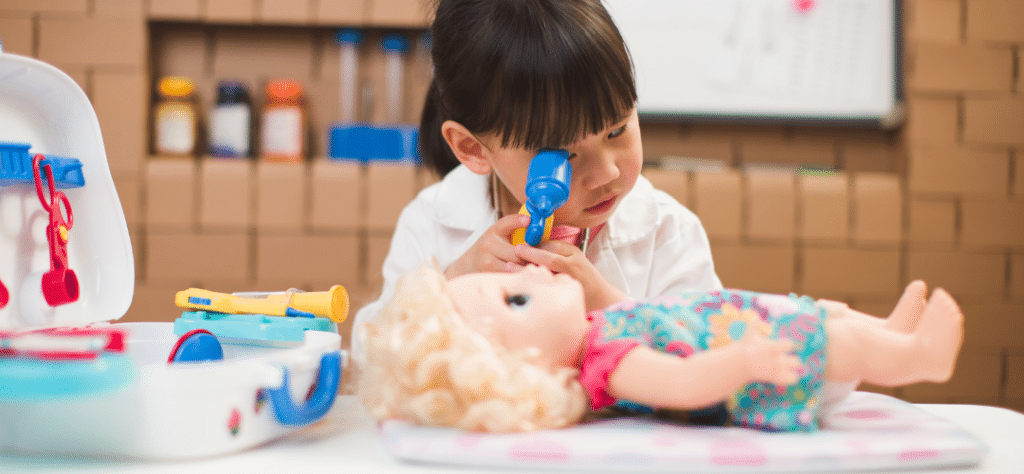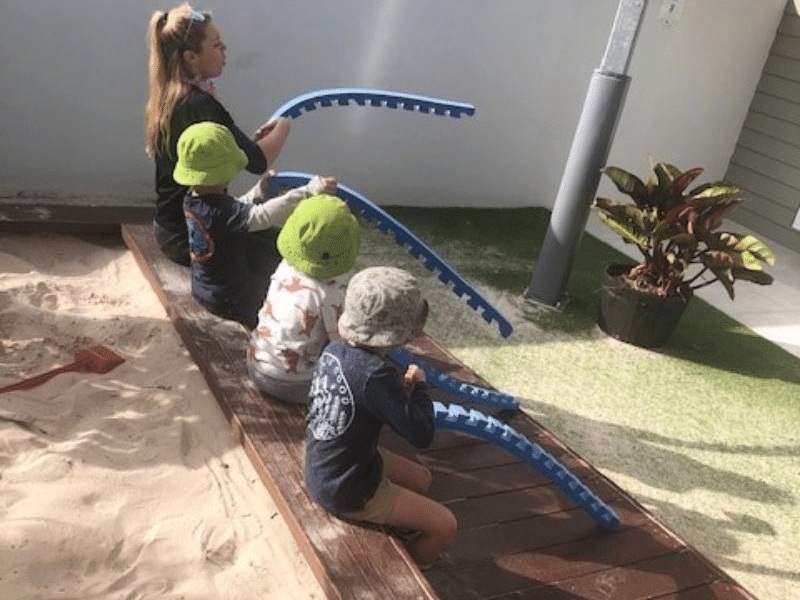
Imaginative play, often referred to as pretend play or make-believe play, is a crucial aspect of early childhood development. It involves children using their creativity and imagination to create scenarios, roles, and activities. This type of play not only entertains but also plays a significant role in cognitive, social, emotional, and physical development. Understanding the importance of imaginative play can help parents, caregivers, and educators foster an environment that encourages this vital aspect of growing up.
Cognitive Development

Enhancing Creativity and Problem-Solving Skills
Imaginative play allows children to explore different scenarios and solve problems creatively. When a child pretends to be a doctor, they might come up with ways to “cure” their stuffed animals. This process involves thinking critically and coming up with solutions, enhancing their problem-solving skills.
Language and Communication
Pretend play often requires children to use language to create and navigate their scenarios. Whether they are pretending to be teachers, parents, or superheroes, they practice vocabulary, sentence structure, and conversational skills. This not only improves their language abilities but also helps them understand the nuances of communication, such as tone, volume, and body language.
Cognitive Flexibility
Engaging in imaginative play helps children develop cognitive flexibility, which is the ability to switch between different thoughts and adapt to new situations. For instance, a child might pretend to be a pirate sailing the seas and then quickly switch to being an astronaut exploring space. This mental flexibility is crucial for academic success and everyday problem-solving.
Social Development

Learning Social Roles and Rules
Through imaginative play, children learn about social roles and rules. When they play house, school, or other social scenarios, they take on different roles and learn the associated behaviors and responsibilities. This helps them understand the dynamics of different relationships and social structures.
Cooperation and Negotiation
Pretend play often involves multiple children, which requires them to cooperate and negotiate roles and rules. They learn to take turns, share, and listen to others’ ideas. These interactions are essential for developing social skills and forming healthy relationships.
Empathy and Perspective-Taking
By taking on different roles, children learn to see things from others’ perspectives. For example, when a child pretends to be a parent taking care of a baby, they start to understand the feelings and responsibilities involved in that role. This ability to empathize with others is crucial for social development and building strong, compassionate relationships.
Emotional Development

Expressing and Managing Emotions
Imaginative play provides a safe space for children to express and manage their emotions. They can explore different feelings by acting out scenarios and dealing with various situations. For example, a child might play out a scene where they are scared and then comfort themselves, helping them understand and manage fear in real life.
Building Self-Confidence
Taking on different roles and succeeding in various scenarios can boost a child’s self-confidence. When they pretend to be a superhero who saves the day or a chef who creates a delicious meal, they feel a sense of accomplishment and pride. This confidence can translate into real-life situations, helping them tackle challenges with a positive attitude.
Coping with Stress and Anxiety
Imaginative play can also be a way for children to cope with stress and anxiety. By creating scenarios where they are in control, children can process and understand difficult emotions or situations they might be facing. For instance, a child going through a family change might play out scenarios involving family dynamics to make sense of their feelings.
Physical Development
Fine and Gross Motor Skills
Many forms of imaginative play involve physical activity, which helps develop both fine and gross motor skills. Building forts, dressing up, or acting out stories require children to use their bodies in different ways. This physical activity is essential for overall health and development.
Hand-Eye Coordination
Activities like drawing treasure maps, setting up play kitchens, or constructing imaginary worlds with blocks improve hand-eye coordination. These skills are vital for many everyday tasks and academic activities.
Spatial Awareness
When children create and navigate their imaginative worlds, they develop spatial awareness. Understanding how objects and people move and fit in space is crucial for activities like sports, driving, and even certain academic subjects like mathematics.
Encouraging Imaginative Play

Providing the Right Environment
Creating an environment that encourages imaginative play is crucial. This can be done by providing open-ended toys like blocks, dress-up clothes, and art supplies. These items allow children to use their imagination rather than directing them towards a specific type of play.
Limiting Screen Time
While digital devices can offer educational content, they often limit opportunities for imaginative play. Encouraging children to engage in more hands-on, creative activities can help foster their imagination and development.
Joining in the Fun
Parents and caregivers can support imaginative play by joining in. This doesn’t mean taking over the play but rather participating as a fellow player. For instance, if a child is pretending to run a restaurant, the parent can play the role of a customer. This not only validates the child’s play but also enhances the experience by adding complexity and new ideas.
Encouraging Outdoor Play

Outdoor environments provide endless opportunities for imaginative play. Nature offers diverse materials and settings that can spark creativity. A simple stick can become a magic wand, a pirate’s sword, or a tool for building a fort. Encouraging children to spend time outside can enhance their imaginative play.
Allowing Unstructured Time
Children need time to engage in imaginative play without the constraints of a structured schedule. Allowing for periods of unstructured time gives children the freedom to explore their creativity and ideas at their own pace.
Conclusion
Imaginative play is more than just a way for children to pass the time; it is a vital component of their development. Through pretend play, children enhance their cognitive, social, emotional, and physical skills. They learn to think creatively, solve problems, understand social roles, express and manage their emotions, and develop physical abilities. By providing the right environment and opportunities, parents and caregivers can support and nurture this important aspect of early childhood development. In doing so, they help lay the foundation for well-rounded, confident, and capable individuals.

